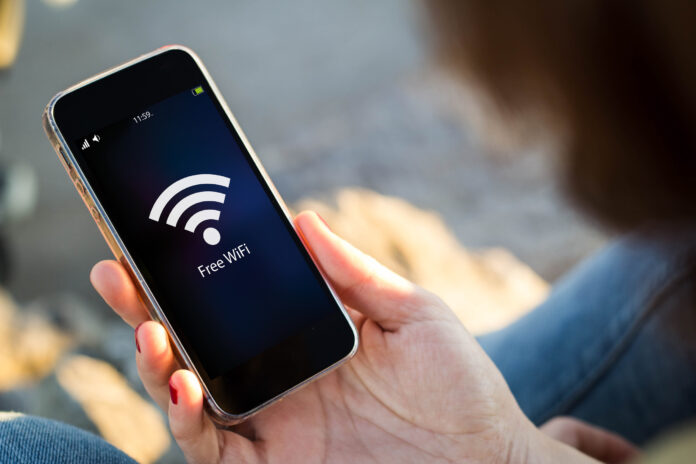As user behavior continues to shift mobile data consumption toward Wi-Fi, telcos like AT&T are doubling down on Wi-Fi offload strategies
A new partnership between AT&T and Karrier One, announced today, aims to significantly expand global Wi-Fi offload coverage while pushing the boundaries of decentralized mobile connectivity. The collaboration builds on AT&T’s existing global Wi-Fi footprint by integrating it with Karrier One’s decentralized wireless (DeWi) infrastructure. The result is a growing, interoperable network of Wi-Fi access points that gives mobile users more opportunities to seamlessly offload data traffic from cellular networks to Wi-Fi — while preserving security and quality of service.
This expansion comes at a critical time, as new data from OpenSignal reveals that Wi-Fi is already doing the heavy lifting when it comes to smartphone data usage. The study, which analyzed five major U.S. mobile service providers — Verizon, T-Mobile, AT&T, Spectrum Mobile, and Xfinity Mobile — found that Wi-Fi accounts for the vast majority of users’ mobile data consumption. In fact, for AT&T users, 86% of their total data usage happens over Wi-Fi, with 81% of usage still occurring on Wi-Fi even when users are away from home.
“Wi-Fi networks shoulder the brunt of our users’ phone data usage,” wrote OpenSignal researchers Rupert Bapty and Andrey Popov, who noted that smartphone users spend three times more screen-on time at home than on the go. But even when outside, users appear to default to Wi-Fi whenever it’s available.
This behavior isn’t uniform across all operators but shows a clear trend. Cable MVNOs like Xfinity Mobile top the list with a staggering 89% of data consumed over Wi-Fi, compared to 84% for Verizon and 82% for T-Mobile. The reasons vary — from improved indoor coverage and higher speeds to the continued prevalence of data-capped plans, particularly among MVNOs.
Telcos are responding to these trends in different ways. At RCR Wireless News’ Wi-Fi Forum, T-Mobile’s Senior VP of Broadband Rob Roy stated that the company is actively exploring how to shift more mobile data onto next-generation Wi-Fi 7 networks. The goal? Enhance customer experience through faster speeds and improved signal quality indoors.
AT&T, for its part, has taken a more hands-on approach by deploying and managing its own Wi-Fi networks in densely populated urban areas. This enables tighter integration with its core telecom infrastructure, ensuring that offloaded traffic maintains carrier-grade security, performance and reliability.
Now, with Karrier One in the mix, AT&T is extending its Wi-Fi reach even further through a blockchain-based DeWi model that allows independent operators to contribute Wi-Fi coverage.
“As telecom continues to evolve, AT&T recognizes the importance of alternative infrastructure models to expand coverage, improve user experience, and reduce costs,” said Karrier One CEO Samer Bishay. “This agreement is a testament to the power of Wi-Fi offload combined with Web3 innovation, ensuring that subscribers can stay connected, whether they’re at home or traveling internationally. By embracing DePIN, we’re not just enhancing connectivity, we’re shaping the future of decentralized telecom infrastructure, making networks more resilient, efficient, and accessible for everyone.”
As Wi-Fi offloading becomes more central to network strategy, this AT&T-Karrier One partnership exemplifies how legacy carriers and emerging tech players are finding common ground to serve evolving user behavior — and, in doing so, reshape the mobile data landscape.

